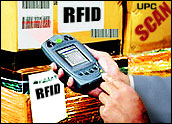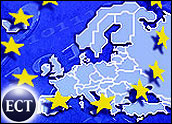
A new report shows that government agencies are “reinventing” themselves with online customer service — interactive, transactional applications available via the Internet.
The report, which looks at government agencies around the globe, was produced by Accenture, the consulting firm. A copy of the report was provided to CRM Buyer.
The study indicates that the Internet is thus “redefining” the relationship between citizens and their governments, as government agencies around the world adopt digital applications, from allowing drivers to pay for street parking using their mobile phones, to using text messaging for “amber alerts” on missing children, to installing interactive kiosks that provide information about city events, dining, and shopping.
Global Reach
Entitled “Leadership in Customer Service: Building the Trust,” Accenture’s seventh global report on government customer service delivery was based on interviews with executives in 11 countries, including the U.S., Denmark, Singapore, the UK and Japan.
Several key findings emerged from the research, including the following:
- Government agencies that are considered customer service leaders are introducing services on par with the best of the private sector, using a range of technologies — from text messaging and mobile applications to kiosks and interactive voice response — to provide unique and interesting services.
- Government bodies are at a “critical juncture” for service success because they have reached the limits of their current approaches to customer service and are re-assessing and re-crafting their customer service strategies to create lasting value.
- Remaining in a leadership position in the future will depend upon governments’ ability to adapt to change and address new challenges, using the Internet and wireless technologies.
“Overall confidence in government’s ability to deliver improved services — from benefit awareness to registration, distribution of benefits, and the delivery of services — is at risk of data integrity/theft, and of not meeting citizen location and convenience demands,” said Teresa Bozzelli, industry analyst and managing director of Government Insights, an IDC company.
She added that governments must create a dynamic, safe, infrastructure and securely integrate consumer information to confidently deliver on the promise of protected information and services.
Security a Concern
Citizens want more government services online, but only if those services are both usable and highly secure, said Bill Connor, president and chief executive officer of the online security firm Entrust. “Strong authentication can allay concerns about privacy, but governments also have to communicate how safe it is for citizens to do business with them,” Connor told CRM Buyer.
According to the Accenture study, the “next wave” of government agencies will deliver customer service that builds an implicit trust between citizens and their government that goes beyond citizen satisfaction.
The report also found that government agencies are creating increasingly local citizen touch points. By building local connections with the people they govern, for example by opening local government offices or creating citizen service call centers, government agencies are better able to incorporate reliable customer feedback into the design of services.
Entrust’s Connor pointed out that countries like Canada and Singapore are especially savvy with online applications. Canada just completed its first census where citizens could complete their forms online.
“There also are countries like Spain where the citizens are quite enthusiastic about e-government,” said Connor. “That country was the first to roll out a national ID card, and with the e-passport mandate looming for countries that participate in the U.S. Visa Waiver program, it’s clear this year there will be a great deal of movement across the globe.”








































